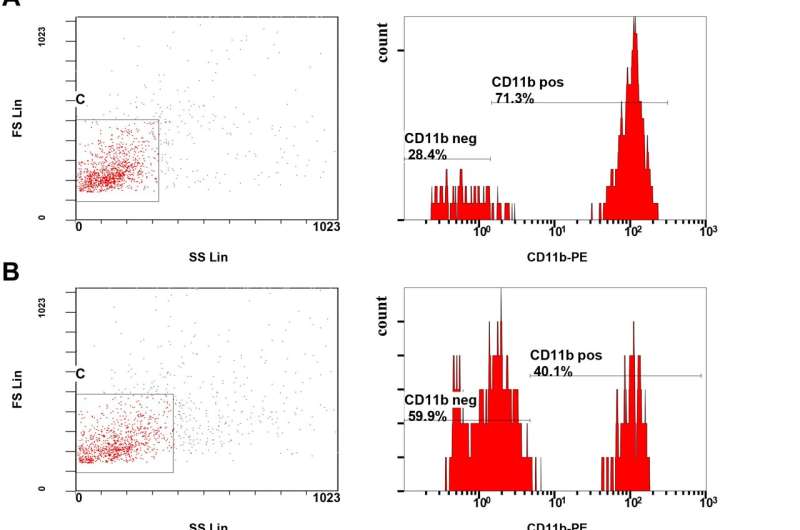This article has been reviewed according to Science X's editorial process and policies. Editors have highlighted the following attributes while ensuring the content's credibility:
fact-checked
peer-reviewed publication
trusted source
proofread
For personalized treatment of inflammation, sensitivity to hypoxia must be considered: Study

If the oxygen level in organs and tissues falls below normal, hypoxia occurs. Then the body launches defensive responses. In many ways, they coincide and overlap with the response to inflammation, because this process is accompanied by local hypoxia.
In particular, macrophage immune cells depend on proteins that are activated by hypoxia. They can promote inflammation or suppress it, depending on what "awakened" them. For example, HIF-1 proteins appear during hypoxia and provoke the appearance of pro-inflammatory macrophages.
RUDN University doctors have found that even when the oxygen level is normal, inflammation and the reaction to hypoxia are connected. The key is individual sensitivity to hypoxia. Their results are published in PeerJ.
"Individual tolerance to hypoxia affects the course and outcome of infectious and inflammatory diseases. Macrophages, which play a central role in the inflammatory response, are also driven by hypoxia. The characteristics of macrophages, which depend on the body's resistance to oxygen deficiency, can determine the severity of infectious and inflammatory diseases.
"Our goal was to compare the molecular and functional characteristics of macrophages at normal oxygen levels in rats with different sensitivity to hypoxia," Dzhuliia Dzhalilova, a researcher at the Research Institute of Molecular and Cellular Medicine, RUDN University said.
The experiment was carried out on 50 laboratory rats. First, the animals were assigned to 1 of 3 groups depending on their sensitivity to hypoxia. To do this, they were placed in an environment with rarefied air, which corresponds to an altitude of 11,500 meters. In 12 individuals, increased resistance to hypoxia was found, and in 13, decreased resistance was noted. The remaining rats were excluded from the study. A month after this test, the animals' blood samples were taken and levels of immune-related proteins and other parameters were compared.
In rats with increased sensitivity to hypoxia, doctors discovered a tendency to form pro-inflammatory macrophages. This is evidenced by the increased content of Hif1a and CCR7 proteins compared to the other group. It is the first time such results have been obtained.
"The differences found indicate that rats susceptible to hypoxia are prone to the formation of pro-inflammatory macrophages. This finding may become the basis for new personalized approaches to the treatment of inflammatory diseases, depending on individual resistance to hypoxia," Dzhuliia Dzhalilova, a researcher at the Research Institute of Molecular and Cellular Medicine, RUDN University said.
More information: Dzhuliia Dzhalilova et al, Molecular and phenotypic distinctions of macrophages in tolerant and susceptible to hypoxia rats, PeerJ (2023). DOI: 10.7717/peerj.16052



















